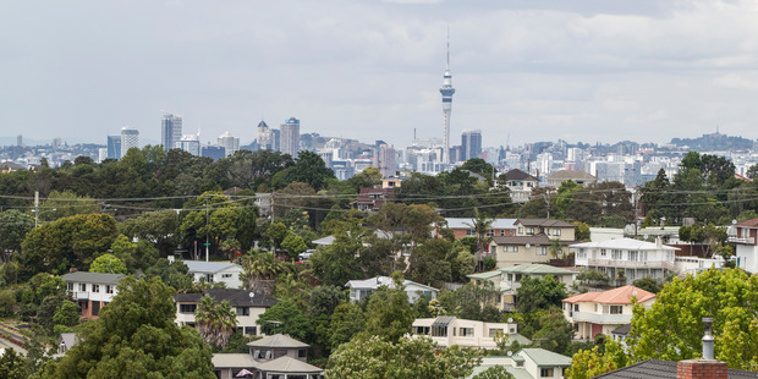
Auckland's average house sale price has dropped from $1.23 million to $1.21m and the median from $1.81m to $1.41m, Barfoot & Thompson says.
The amount of property available for the agency to sell from March to April also jumped from 4816 to 4845.
"The decline in Auckland residential property prices that has been predicted following the rise in the rate of inflation and mortgage interest rates has finally shown up in sales figures," managing director Peter Thompson said.
"The median and average sales prices in April fell back when compared to those in March, and those for the previous three months, but remained well ahead of the prices of property 12 months ago," he said.
"Buyers are now showing a greater reluctance to meet vendor expectations."
The greatest impact the changed economic conditions had on the property market was on the number of property sales, which at 615 was 47.9 per cent below those for the previous month.
"For vendors, the positive news is that the prices at which sales are being made are still well in excess of those prevailing 12 months ago," Thompson said.
Vendors who had an open mind on values were more likely to sell, he said.
New listings for the month at 1302 were down a third on those for last month but are in line with the numbers normally listed in April.
The Real Estate Institute has also noted the changes.
In March, the Herald reported how it said housing sales volumes and prices were continuing to decline and the institute has forecast "further" easing of price growth in the coming months.
Jen Baird, REINZ chief executive, said in March that February's sales numbers continued to trend down and an influx of stock was easing demand pressure "which may in turn further ease price growth in the coming months."
She blamed a three factors: "The Credit Contracts and Consumer Finance Act, the reintroduction of loan to value ratios and increases to the official cash rate, with further increases expected, are affecting buyers who are increasingly showing caution. While the appetite and demand for property remains, we are hearing from agents across the country that open homes and auction rooms are quieter."
CoreLogic said last month with volumes and values were down.
Nick Goodall, CoreLogic research head, said the last time house values last fell for an extended length of time, they went down by 10 per cent.
That was from October 2007 to February 2009 during the global financial crisis.
The change was well publicised, he said, but the length of the downturn was not as well known.
The CoreLogic house price index released on April 5 showed the market has weakened further and the power is shifting to buyers.
CoreLogic said house values flattened in March, a further drop from the February reading and the lowest monthly rate of change since the weakness which followed the Covid-enforced national lockdown in August 2020.
Every main centre had price drops or a reduction in the monthly, quarterly and annual growth rates, CoreLogic said.
Dunedin values fell 1.3 per cent in March, the largest monthly decline since February 2009. The annual rate of growth dropped to 12.5 per cent, which is well down on the peak rate of growth achieved only six months ago of 23.2 per cent, CoreLogic said.
Take your Radio, Podcasts and Music with you








